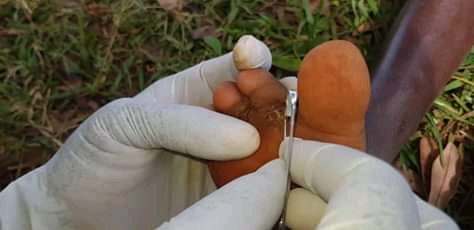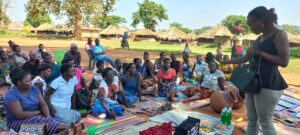Success Story: Stakeholders of Mayuge District Share of a Jigger free Busoga

On the 15th/05/2023, Global Pathways was hosted by Mayuge district with key stakeholders in the District Board room. Global Pathways for Success-Uganda (GPSU) presented feedback on their success stories, intentions of scaling up, and providing more health services to affected victims.
For the past 4 years, GPSU long-term projects was to implement a jigger free Busoga region project with a goal of completely eradicating jiggers by sensitizing communities, treating jigger patients and advocating for the supply of essential medicines to communities, rehabilitation of victims and their integration in communities.
What is Jiggers?
According to Wikipedia Jiggers is “a Tunga penetrans is a species of flea also known as the jigger, jigger flea, chigoe, chigo, chigoe flea, chigo flea, nigua, niknik, sand flea, or burrowing flea. It is a parasitic insect found in most tropical and sub-tropical climates. In its parasitic phase it has significant impact on its hosts, which include humans and certain other mammalian species. A parasitical infestation of T. penetrans is called tungiasis.” https://en.wikipedia.org/wiki/Tunga_penetrans
Tunga penetrans has affected the shores a Uganda in dynamic ways, leaving the people that become infected with social, emotional, and physical debilitations that can led to death. GPSU has made efforts to transform community perception , attitudes and practices towards positive hygienic and sanitation behaviors that will contribute to jigger eradication consequently, improving general health status and sustainable community development.
This project that has been implemented in Busakira sub county will now be rolling out to Bukabooli sub county which is yet another sub county affected by jiggers according to a survey that was carried out recently. Present in this meeting are; the District Vice Chairperson, Representative of the RDC, DISO, principal Assistant Chief Administrative Officer, District community Development Officer, District Health Officer, in-charge Kaluuba health facility, sub county leadership of Busakira as well as VHTs. #community #leadership #health #success #development #project #sustainable #EndpovertyNowInc #Mayugedistrict


